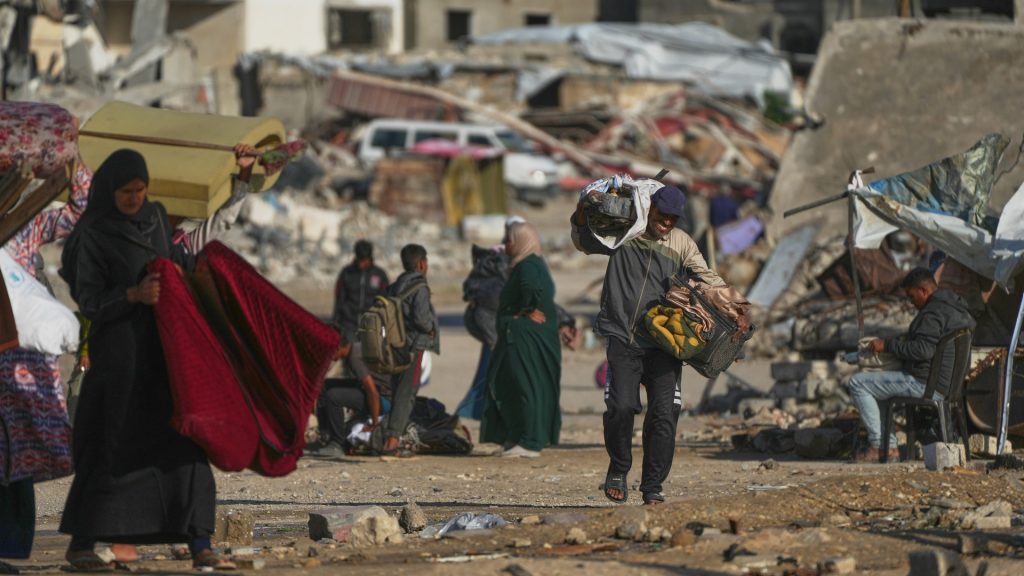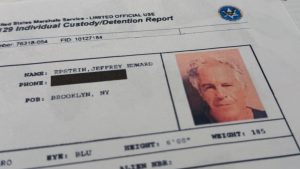UN approves Gaza resolution. Both Hamas and Israel have their doubts.

Now that nearly all of the hostages in Hamas’ captivity have been returned to Israel, attention is turning to what comes next in the tenuous but ongoing ceasefire. Paving the way is a new U.S.-authored United Nations Security Council resolution, passed Monday, that allows for an International Stabilization Force (ISF) to help oversee the demilitarization of the Gaza Strip, among other things.
New governing structure, international force
On Monday, the U.N. Security Council approved a resolution that allows for the creation of an International Stabilization Force, tasked with overseeing the borders between Gaza and Israel, providing security for the region and demilitarizing the territory.
The resolution also includes the creation of a transitional body dubbed the “Board of Peace,” chaired by President Donald Trump, which will oversee the enclave’s governance alongside the ISF until Dec. 31, 2027.
The board will not be a de facto government in and of itself, but will instead monitor a technocratic government consisting of Palestinian and international experts.
“Congratulations to the World on the incredible Vote of the United Nations Security Council, just moments ago, acknowledging and endorsing the BOARD OF PEACE, which will be chaired by me, and include the most powerful and respected Leaders throughout the World,” Trump posted to X Monday night. “This will go down as one of the biggest approvals in the History of the United Nations, will lead to further Peace all over the World, and is a moment of true Historic proportion!”
Roadblocks remain
Meanwhile, the Israel Defense Forces are expected to continue withdrawing from the Strip, and Hamas is expected to fully disarm, though details on these two points are a bit murkier, as both parties have refused to unconditionally commit to the terms.
Hundreds of Hamas fighters are reportedly trapped inside tunnels in Israeli-controlled Gaza, but they also haven’t shown signs of surrender, killing at least two Israeli soldiers since the start of the ceasefire.
Similarly, Israeli Defense Minister Israel Katz said Nov. 5 that “the IDF is acting to destroy the tunnels and eliminate Hamas terrorists without any restrictions within the yellow area under our control.”
Hamas has forcefully come out against the U.N. resolution, saying in a statement, “Assigning the international force with tasks and roles inside the Gaza Strip, including disarming the resistance, strips it of its neutrality, and turns it into a party to the conflict in favor of the [Israeli] occupation.”
The group added, “Any international force, if established, must be deployed only at the borders to separate forces, monitor the ceasefire, and must be fully under UN supervision.”
Israel’s U.N. ambassador, Danny Danon, also doubled down on his country’s stance. In a statement following Monday’s vote, Danon said, “Just as we are determined to bring all the hostages home, we will demonstrate the same determination in ensuring that Hamas is disarmed. We will not stop or let up until Hamas no longer presents a threat to the State of Israel.”
Is Palestinian statehood on the table?
Even more murky is another provision in the U.N. Security Council resolution containing language that could set the stage for a sovereign Palestinian state, something the Israeli government under Prime Minister Benjamin Netanyahu has vehemently opposed.
Though Gaza’s governance will initially be handled by the technocratic group, that body will eventually hand control over to a “reformed” Palestinian Authority (PA), the same government that controls parts of the occupied West Bank. The PA previously had governing control over Gaza as well, but ultimately lost its stake to Hamas following elections in 2006.
Specifically, the U.N. notes that after the PA is created and governing Gaza, “the conditions may finally be in place for a credible pathway to Palestinian self-determination and statehood.” The language surrounding Palestinian statehood is vague, and there is no guarantee that it will earn complete sovereignty.
The resolution has the backing of some Arab and Muslim countries. The Palestinian Authority’s leadership has also “openly welcomed the initiative,” according to Algeria’s ambassador to the U.N.
‘Colonial outrage’
Other international observers have criticized the move. Russia and China both abstained from the vote, with Moscow putting forth an alternative resolution.
In explaining Russia’s decision to abstain, Ambassador Vasily Nebenzya accused the Security Council of “giving its blessing to a U.S. initiative on the basis of Washington’s promises,” adding that the resolution gives “complete control over the Gaza Strip to the Board of Peace and the ISF, the modalities of which we know nothing about so far.”
Former U.N. human rights official Craig Mokhiber also spoke out against the resolution, calling it “horrific.”
“Not a single member of the Council had the courage, principle, or respect for international law to vote against this US-Israel colonial outrage. This proposal has been rejected by Palestinian civil society and factions, and defenders of human rights and international law everywhere,” Mokhiber posted to X, adding, “the struggle for Palestinian freedom will continue undeterred, with or without them.”
According to reports, the International Stabilization Force will consist of some 20,000 troops and could begin its mission as early as January 2026.
The post UN approves Gaza resolution. Both Hamas and Israel have their doubts. appeared first on Straight Arrow News.





